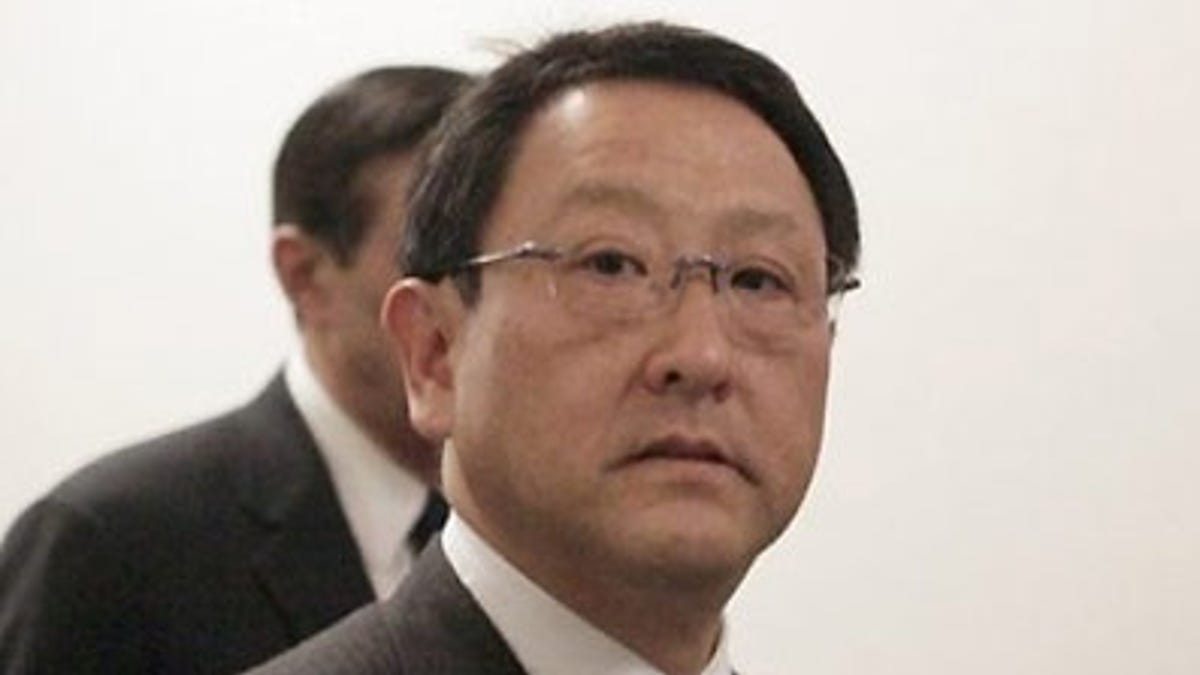
AP
Most of Japan will be watching as Akio Toyoda, the president of the world’s largest vehicle manufacturer, testifies before the House Committee on Oversight and Government Reform tomorrow. The island nation has been stunned by what has been called the worst crisis in Toyota’s 70-year history. In past weeks, the company has recalled 8.5 million cars and trucks worldwide. It is also facing a criminal investigation in the United States.
Not surprisingly, the Japanese government is concerned that Toyota’s growing woes will affect the country’s exports, and even Foreign Minister Katsuya Okada got involved in the matter. “I hope Toyota will soon regain the trust of their customers around the world,” he said on Friday. “Although this is a matter of one individual company we wish to back them up as much as we can as it could become a national issue.”
Almost anything involving Toyota is a “national issue” for Japan. The company is revered in the country—before its recent troubles it was trusted like no other institution, public or private. Toyota has by no means lost its iconic status there, but its image has nonetheless been damaged.
The company’s troubles, for instance, are reflected in the attitudes toward Mr. Toyoda, the chief executive. He was once known as “the prince,” a reference to his being one of the grandsons of the company’s founder. Now, he has picked up another name after many have accused him of ducking the public. His new moniker? “No-show Akio.”
Yet if there is a prevailing mood in Japan over Toyota’s troubles, it is anger directed at the United States. Some Japanese see the Congressional hearings as a government scheme to help General Motors, in which Washington holds an ownership interest, and others perceive the controversy as another case of America’s “Japan bashing.” President Obama’s political troubles have even figured into Japanese analyses as some have accused the administration of trying to divert attention from its sagging poll numbers. Regrettably, many Japanese have linked the Toyota matter to the dispute over America’s military bases in Okinawa, an increasingly nasty disagreement shaking the decades-old alliance between the two countries.
So far, Tokyo is trying to downplay the matter. “We should not make this issue a political matter between the Japanese and U.S. governments,” said Economy, Trade and Industry Minister Masayuki Naoshima. “It will not be in the interest of either of our nations if a problem like this strains the bilateral ties between the U.S. and Japan,” chimed in Seiji Maehara, the transport minister.
Naoshima and Maehara are right, of course. The risk, however, is that Americans begin to perceive that Toyota’s recalls are the result of systemic failures at the company—and not isolated problems. In this case, Japanese public opinion is bound to become inflamed—and that will inevitably affect relations between Washington and its “cornerstone” ally in Asia.
So welcome to Washington, Mr. Toyoda. There is more than the fate of one car company riding on your testimony on the Hill tomorrow.
Gordon G. Chang is the author of "The Coming Collapse of China." He writes a weekly column at Forbes.com.




















